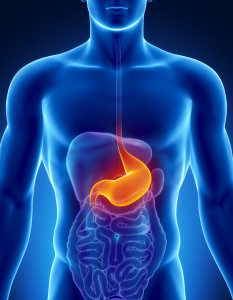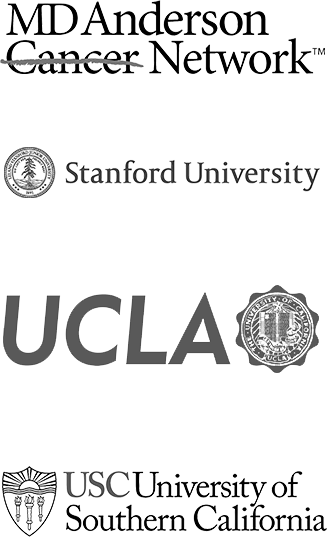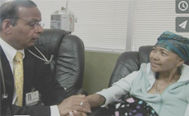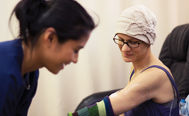 Gastric cancer (stomach cancer) is a type of soft tissue sarcoma and ranks as the fourth most common cancer worldwide. Most cases of this disease tend to appear in men of African and Asian descent but it can develop in Caucasian males age 70 and older.
Gastric cancer (stomach cancer) is a type of soft tissue sarcoma and ranks as the fourth most common cancer worldwide. Most cases of this disease tend to appear in men of African and Asian descent but it can develop in Caucasian males age 70 and older.
This type of cancer forms in the innermost lining (mucosal layer) of the stomach, making it hard to detect at an early stage. Symptoms can also be confused with a peptic ulcer, and the disease left untreated until it reaches a more advanced stage. Keeping a schedule of regular medical check-ups can be instrumental in detecting gastric cancer when it’s treatable.
Early symptoms include:
- Indigestion and stomach discomfort
- A bloated feeling after eating
- Mild nausea
- Loss of appetite
- Heartburn
Symptoms of a more advanced stage of gastric cancer could include blood in the stool, vomiting, weight loss, yellow skin, and difficulty swallowing. Gastric cancer can then also spread to other parts of the body such as the bones, lungs, and liver.
Who is at Risk?
If you have a risk factor for the disease, it only means that you need to be aware of the possibility and you should manage your health.
Some risk factors include:
- Gender – men have twice the change of developing the disease
- Advanced age – men and women over 70
- Lifestyle – factors including smoking, drinking alcohol, and improper diet (especially nitrate-preserved foods)
- Blood type – individuals with blood type A
- Race – African-American or Asian descent
- Geography – more common in Japan, Eastern Europe (former Soviet Union), and Central America and South America
How is Gastric Cancer Treated?
Gastric cancer is treatable when it is diagnosed early. After a medical exam and screening tests such as an upper GI, CT scans, PET scans, bone scans, and ultrasound, your oncologist would develop the best possible treatment plan which can include one or more of the following:
- Chemotherapy
- Radiation therapy
- Gastrectomy (removes all or part of the stomach)
Medical centers including the Cancer Center of Southern Calfornia are leaders in clinical trials for new treatment approaches such as biological therapy and drug therapies.
Contact One of Our Specialists
If you suspect that you might have cancer or seek a second opinion for a cancer diagnosis, contact the Cancer Center of Southern California. The center’s doctors are specialists in sarcoma care and partner with specialists from renowned institutions such as USC, Stanford and UCLA. Call today at 310-552-9999 for a consultation or information. We would like to help you by answering your questions.
Next, read about Cancer Treatment.



